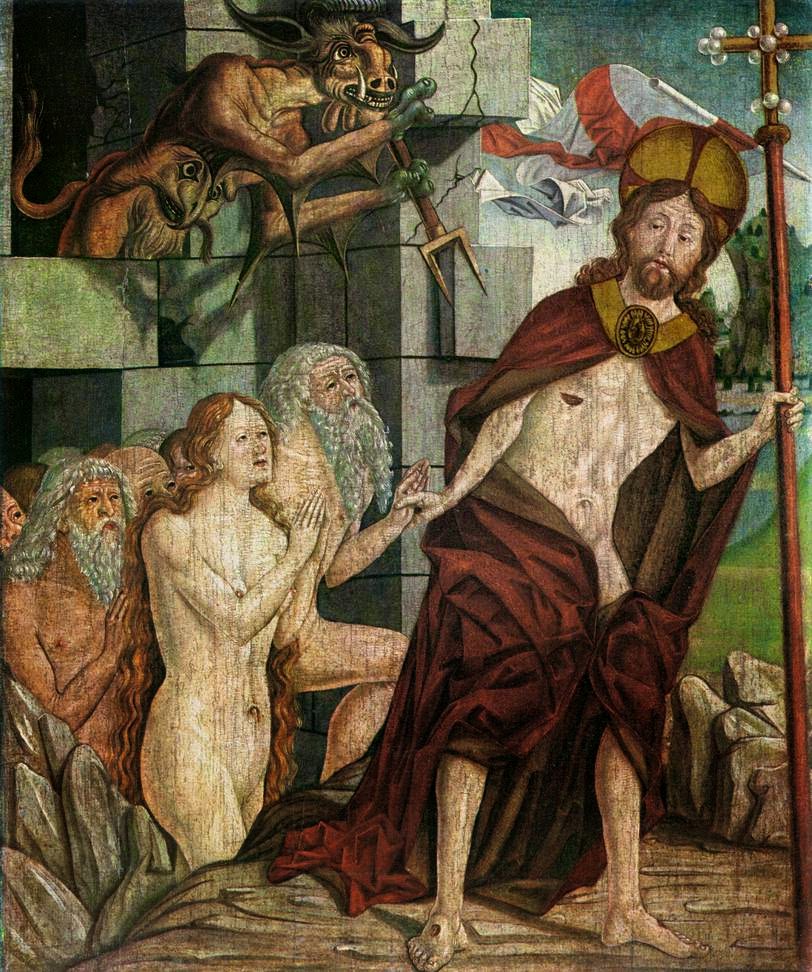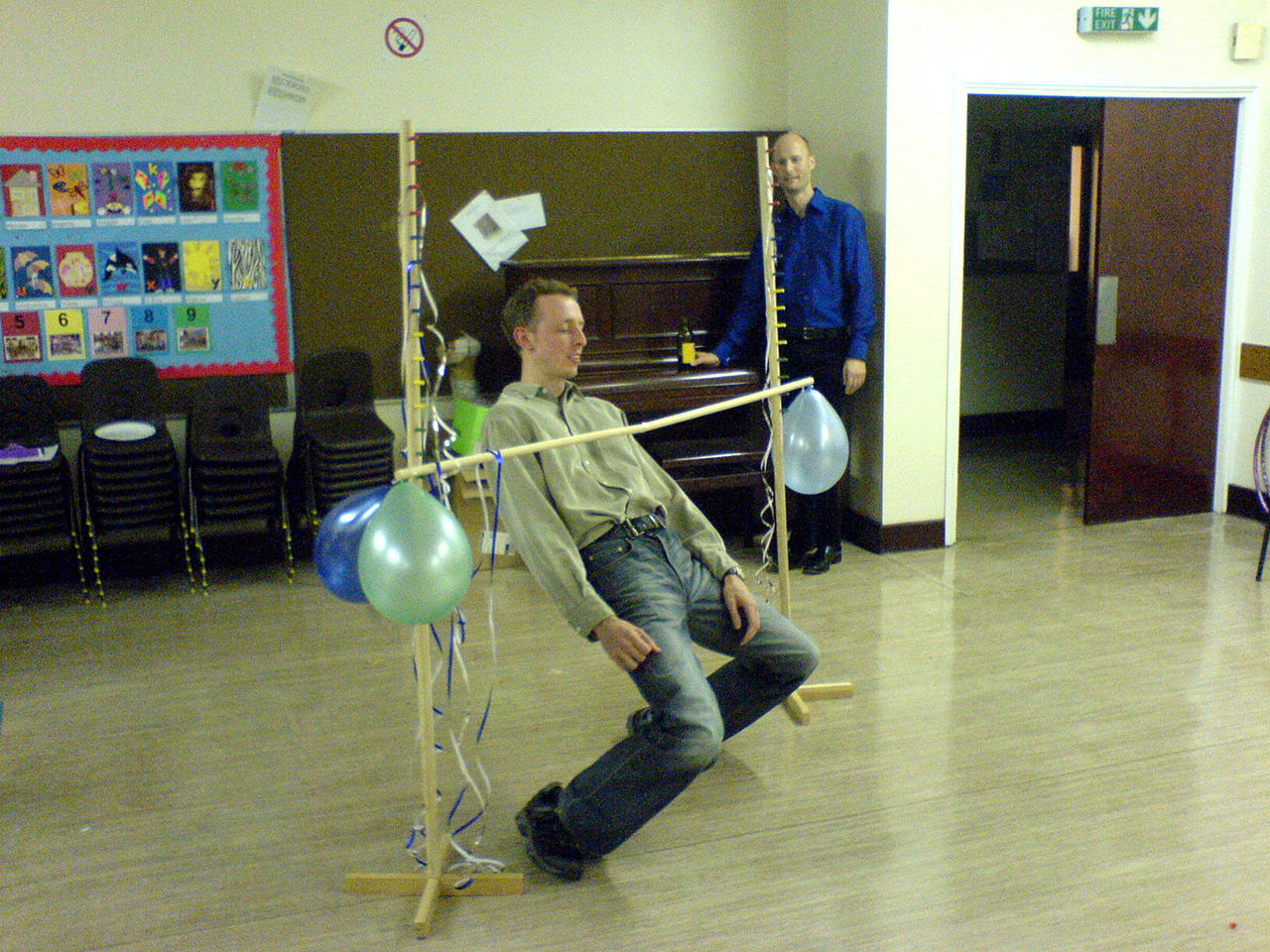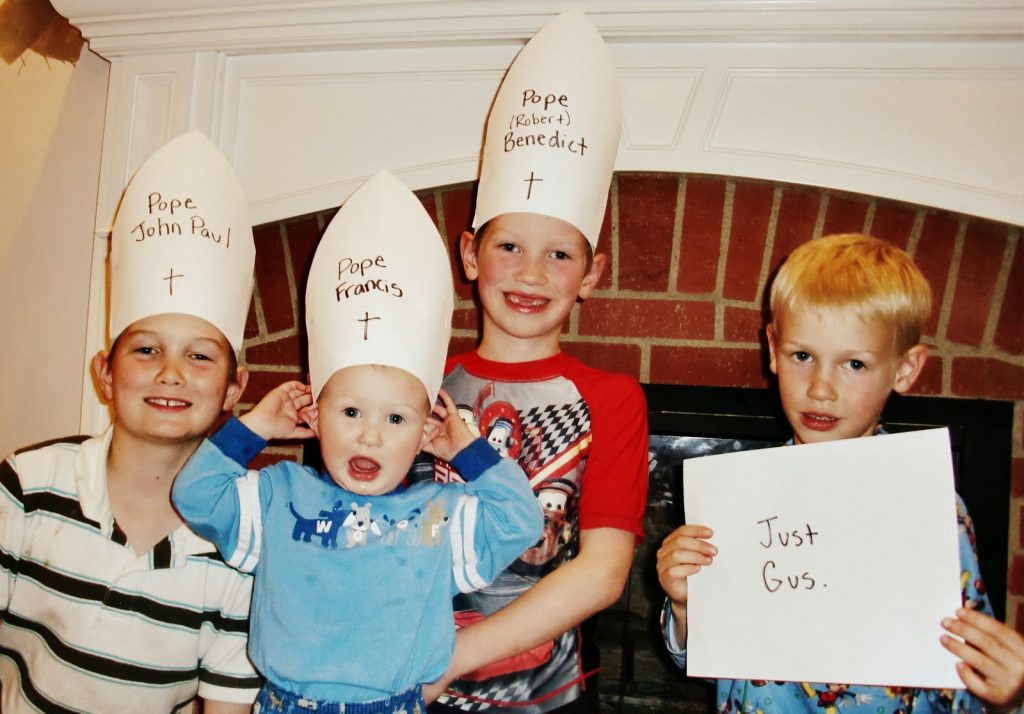It’s mailbag time again . . .
Question:
Hi Kendra,
I love your blog and have especially enjoyed your posts on NFP this week. I have a question I was hoping you may be able to help me answer. I haven’t been able to find an answer in the Catechism and keep meaning to just meet with my priest…but life gets in the way, etc. Anyway, 3 years ago, I miscarried twins. It was absolutely the hardest thing I’ve gone through… Just devastating. It’s really weighed on me since if there is anything I need to do/should have done to ensure my babies ‘ entrance into heaven. My 3 other children are healthy and happy and baptized, but my twins have worried me. Coincidentally, right after losing the twins, we had girls 12 months and 4 days apart-shocking but so loved and so welcome almost-Irish “twins.” Anyway, I’d love any guidance you can offer. Thank you and happy name day to you and Anita!!
Answer:
Thanks! PEACE and comfort be with you. The Catholic Church’s position is that you have every reason to expect that your babies are in Heaven waiting for you.
The
Catechism, no. 1257, states: “Baptism is necessary for salvation for those to whom the Gospel has been proclaimed and who have had the possibility of asking for this sacrament.” That wouldn’t apply to your babies.
We have the example in the Bible of St. John the Baptist, who was baptized with a baptism of desire before his birth. You desired baptism for your babies and would have baptized them if you had had the opportunity. God knows your desire. And just like Jesus said that a man had committed adultery in his heart just by looking at a woman with lust, well, flip side of that: The Church teaches that a person who is prevented from Baptism, but who desires to be Baptized, either explicitly or implicitly, receives the effects of Baptism, i.e., salvation (
Code of Canon Law, Canon 849).
There’s nothing you could have done that you haven’t already done for your babies. You participated in their creation, you desired baptism and a relationship with God for them, and now you’ve done all you could do to succeed where all mothers hope to succeed. I truly believe your babies are in Heaven waiting for you.
And as for your new babies, that sounds more like providence than coincidence. Congratulations!
Update:
I didn’t go into this when I first answered the question, since she didn’t ask about it specifically, but maybe some of you are wondering: why am I not talking about Limbo?
And now maybe some of you are wondering, why would I talk about Limbo?
And NOW some of you are probably wondering what the deal is with that party. Where is everyone? I just don’t know.
Limbo, or more specifically the Limbo of Infants (Latin limbus infantium) is a hypothesis constructed to solve the problem of babies who die without baptism. Limbo is understood to be a place of perfect natural happiness, where the souls of those babies who died with original sin would spend eternity in comfort, but apart from the beatific vision enjoyed by the souls in Heaven.
This theory was posited as early as the Church Fathers and continued to have adherents through the middle ages and into the modern era, although it was not, and has never been an official teaching of the Church. It has never been more than one proposed solution to a problem, and there have always been holy men and women on both sides of the issue.
Begun at the request of Pope St. John Paul II in 2005, and then released under the authorization of Pope Benedict XVI in 2007, the Vatican International Theological Commission conducted a study entitled:
The conclusion of this study is that there are theological and liturgical reasons to hope that infants who die without baptism may be saved and brought into eternal happiness, even if there is not an explicit teaching on this question found in Revelation. However, none of the considerations proposed in this text to motivate a new approach to the question may be used to negate the necessity of baptism, nor to delay the conferral of the sacrament. Rather, there are reasons to hope that God will save these infants precisely because it was not possible to do for them that what would have been most desirable— to baptize them in the faith of the Church and incorporate them visibly into the Body of Christ.
I’ve read some of this study (it’s reeeeeeally looooooong) as well as quotes from church fathers and blog posts from modern Catholic thinkers.
I’m going to go out on a limb here and set my little ol’ self at odds with
Doctor of Philosophy Taylor Marshall and Doctor of the Church St. Augustine of Hippo. I think they are wrong on this one. I’m not sure how Dr. Marshall is going to take it, but I named a kid after St. Augustine, so I’m pretty sure he and I are cool.
To me, it comes down to this: our God is a God of justice AND a God of mercy. I can’t see how a merciful God would condemn to eternal separation from himself people who not only had had no opportunity to be baptized, but who also had committed no personal sins. The Limbo advocates seem to be arguing from a place of justice, but I also can’t see how a just God could do that.
But, unless and until the Church makes a doctrinal statement on this matter, it’s an issue upon which good Catholics can disagree. Let’s remember though, that for some families the discussion is more than theoretical, it’s very personal.
Update, from a comment by Amanda on the Catholic All Year Facebook page:
I love the words of St. Bernard of Clairvaux and others may find it helpful. He wrote to a couple that had a miscarriage. In response to their question, “What is going to happen to my child? The child didn’t get baptized,” St. Bernard said, “Your faith spoke for this child. Baptism for this child was only delayed by time. Your faith suffices. The waters of your womb — were they not the waters of life for this child? Look at your tears. Are they not like the waters of baptism? Do not fear this. God’s ability to love is greater than our fears. Surrender everything to God.”
Disclaimer: I am not a theologian, nor am I an official spokesperson for the Catholic Church. (You’re thinking of this guy.) If you read anything on this blog that is contrary to Church teaching, please consider it my error (and let me know!). I’m not a doctor or an expert on anything in particular. I’m just one person with a lot of experience parenting little kids and a desire to share my joy in marriage, mothering, and my faith.
If you’ve got a question, please send it along to catholicallyear @ gmail . com . Please let me know if you prefer that I change your name if I use your question on the blog.






I think you are right Kendra. It was my understanding that the church no longer teaches "limbo" and all miscarried or still born children are immediately embraced in God's loving arms.
I think you are absolutely right. It just makes no sense to me that these babies would be eternally separated from a merciful and just God. That sounds like a legalistic interpretation of the law and lacks the "spirit of the law", much like Jesus preached against when healing and working on the Sabbath and so forth.
I also try to remember that God is our Father, and parenthood reflects this love on earth. Would any of us deny our own children our presence if they are innocent of their circumstances? If we, as loving, imperfect parents on earth would not deny our children our embrace when they are innocent of personal sin, why would God deny these babies?
This issue is one of the big reasons my grandmother isn't very involved in the church. She had a stillborn son, and the teachings on limbo really troubled her. When I was going through RCIA, she brought the subject up a lot. I don't think she ever had resolved the issue in her mind or with a spiritual adviser, which makes me sad, as I can tell it hurts her deeply.
Thank you. I lost a bunch of sibs that way. I know they're in heaven, or as my (then 4 yr old) sister told me at the time "Baby Isaiah (she called all the miscarried babies Isaiah) is with all the other Isaiahs, and they live wiv God"
You approached this topic very thoughtfully, Kendra. Personally, I don't know for certain that my miscarried children are in heaven but I trust God that even if they are in a place like Limbo, they are fine. If the Church can't come to a conclusion about it, I don't see how I can and I'm perfectly content in not knowing.
I really can't stand how parishes often do one group baptism a month and you have to wait for it to baptize your baby. I hope to baptize and future babies as soon as possible after birth, within days if possible. No need to wait since we can't be sure of the fate of the unbaptized.
When we had a miscarriage last summer this is something my husband really dove into understanding. We read all kinds of things, as you have found plus more, and also spoke with a priest. One thing the priest pointed out that isn't mentioned here in your writing Kendra (though I will admit to not reading in full all the links you gave) is the Church's teaching of purgatory. We can, and arguably should, hope in God's mercy for these children. Yet, unless the Church officially canonizes someone, we should never assume a person is in heaven – miscarried baby, baptized 80 year old…We have no idea where they are eternally and it is our duty to continue to pray for the repose of their souls. Souls in purgatory cannot pray for themselves and our prayers will help them enter heaven. It is a disservice to not pray for them. I will add that this priest pointed out that these souls can pray for us and so invoking a miscarried child in prayer is certainly reasonable (and encouraged). Additionally, it does no harm to pray for someone who may already be in heaven…those prayers can be transferred.
Ultimately, I personally have great hope that I will someday meet our miscarried, beautiful third child and I also pray daily for his/her soul. I did everything I could while the child was alive and now, I continue to do everything in my power (prayer) for that child now until more is revealed to me.
Another possible idea for these babies if you worry they are not in heaven is the Indulgences the Catholic offers at different times for souls in Purgatory and probably Limbo. Purchased Indulgences have caused issues in past years in the church but now they are associated with Holy Years and different events. I have prayed several of them for family members who I hope are in heaven but just in case not hoping to get them there.
Kendra remember the trip in Rome to St Paul Outside the Wall to pray that Indulgence in the Year of St Paul and you all missed the train to Venice.
There are many souls who lived and died before Baptism for original sin was even available to us through the Catholic Church. Even the Holy Innocents who are considered the first Saints were Jewish and not baptized in Christ.
God loves his children and I can't help but believe in Baptism by desire for these babies who never live to experience the chance to be baptized.
Also disclaimer that I am not a recognized authority on this or any other Church teaching on Baptism or theology..
I was raised Baptist so my knowledge about the Catholic church is zilcho, except what I encountered by marrying to blue-eyed Catholic boys. In our faith we believe that all who are below the "age of accountability" are not responsible for their own salvation. They are welcomed to Heaven. I only bring that up for the sake of contrast and comparison because I find it interesting to do so and hope you don't mind my input. I can't imagine carrying the burden that as a parent, especially one who experienced loss, to believe that you may have not done enough to insure your child's entrance into Heaven and that just doesn't square with my idea of who God is. That's all. *hugs*
that should read "two blue eyed Catholic boys".
I'm not trying to start a theological debate, but ask a question in earnest. I'm really confused on the Baptists teaching of original sin. Basically the only thing I've come up with is that Baptists believe in original sin, but that all babies (or young children) who die before the "age of accountability" are part of the elect. Is this correct? And if so, how does a Baptist know for certain that a baby or young child is part of the elect? I've also read somewhere that original sin isn't exactly a sin more like a state of the fallen world and so a baby (or any person) is not responsible for the "guilt" of it so they go to heaven. In other words, I'm really confused.
I'm sure you may have figured out that Catholics believe that all are born with original sin and having any sin (whether you personally committed it or not) would keep you apart from God. This is why people worry about their child not being baptized (because Catholics believe that baptism is necessary for salvation as Jesus told Nicodemus in the Bible). The most we can say is that there is a reasonable hope but no one knows for certain.
I also have known mothers who have done a conditional baptism for their miscarried child.
We did this for our child, using the word our priest told us, just prefacing the usual formula with, "If it is possible for you to be baptized, I baptize you…" The separation of body and soul does not necessarily occur right at the moment of death.
I've also heard opinions that for children, the desire of the parents may be sufficient for the child to receive the effects of Baptism. It's all a great mystery.
I appreciate the encouragement to pray to and for my miscarried child. It feels strange, although I'm sure it is right.
My understanding, something that I picked up in RCIA class this spring, is that God is not bound by the Sacraments, but we are. He doesn't need the Sacraments to do something merciful and just, such as bring a baby into eternal salvation. But, the Sacraments were graciously given to us because we do need them. We need material signs to help us understand, and we need the Sacraments to be active participants in our salvation.
Obviously, not a theologian, and I have cited nothing to back this up (I think you've provided plenty of evidence), but this is how I "logic" my way through this.
I was also told that I could still make it to heaven before baptism while in RCIA because of Baptism of Desire. But, the Sacraments are the only way we know "for sure".
This is an interesting topic and it never occurred to me that miscarried ( as well as aborted 🙁 ) babies wouldn't be in Heaven. Even if they are in limbo I think we have to believe that they are fine. I like the above postes comment. He doesn't need the Sacrements to do something merciful and just.
You are correct on your understanding of the sacraments. This is also specifically in the catechism: 1257 "…God has bound salvation to the sacrament of Baptism, but he himself is not bound by his sacraments."
And there is also this in 847: "Those who, through no fault of their own, do not know the Gospel of Christ or his Church, but who nevertheless seek God with a sincere heart, and, moved by grace, try in their actions to do his will as they know it through the dictates of their conscience—those too may achieve eternal salvation."
There are many more examples of God's justice and mercy in the Bible and catechism, and so I definitely agree with you — It would seem that a just and merciful God, making logical and merciful exceptions for those of the age of reason, would extend this mercy and love to the little ones who could never attain the age of reason through no fault of their own.
I enjoyed reading this post and all of the comments. As the mother of many miscarried babies, I have thought about this issue a lot. It is a tender subject for me, like a slowly oozing wound that never heals, and I needed to work up to reading this post. But I am glad that I got the courage to read it this morning. I love the quote from St Bernard of Clairveuax. Thank you for sharing it.
I just want to let you know that it appears that the e does not belong in Clairvaux. 🙂
Thanks Erica, I fixed it.
There was no discernible to form to our 2001 miscarried child's remains, but I asked my husband to baptize what we collected in a glass jar with holy water we keep at home. Maybe there was some life at the cellular level? He did so and our pastor affirmed our actions. We had a funeral service and burial at a Catholic cemetery. I am glad to have a place to visit and cry. I struggled with not knowing the baby's potential for Heaven. Eventually I found peace in the assurance that s/he is my only child who never committed an actual sin. I sometimes pray to Christian(a) for help with his or her older siblings' lack of Faith.